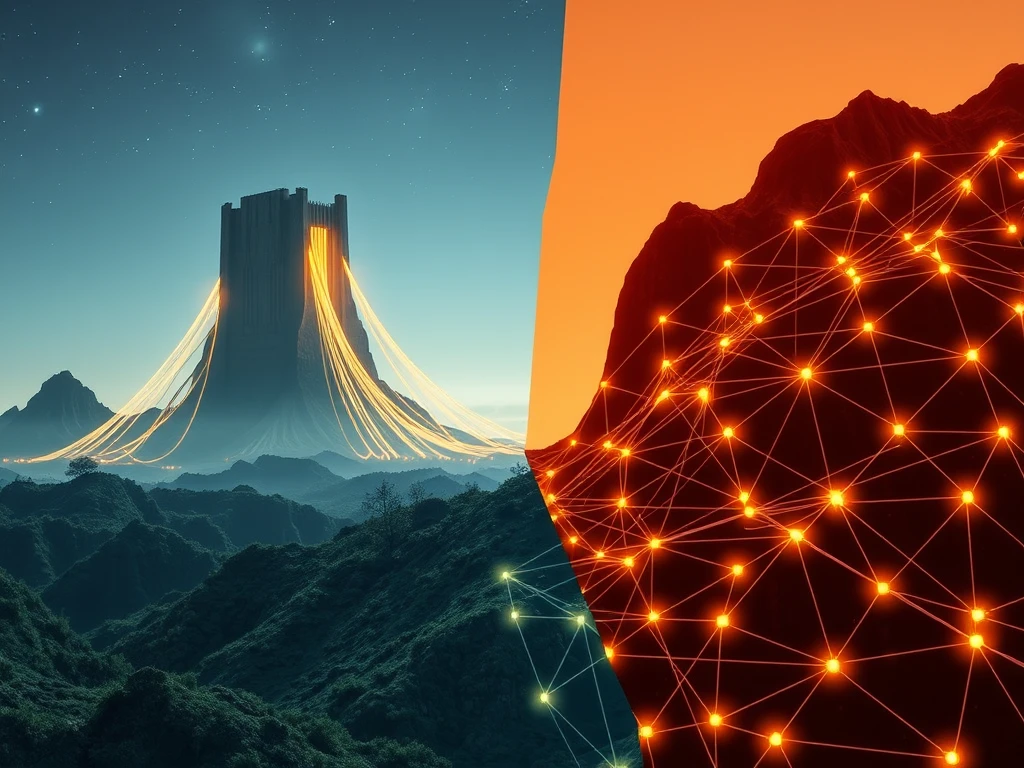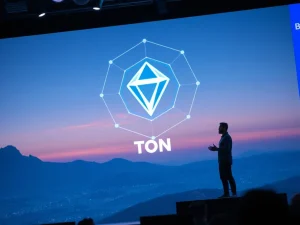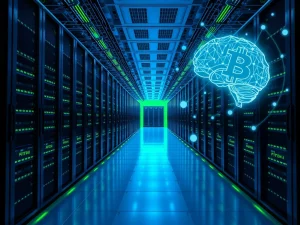Dangerous Centralized AI: Can Decentralized AI Secure Our Digital Future?

For anyone interested in the future of the internet and the potential of blockchain, the rise of Artificial Intelligence presents a critical fork in the road. Will AI be controlled by a few powerful entities, or will it be open and distributed? The current landscape shows Centralized AI dominating, but this comes with significant risks to our privacy, transparency, and ultimately, our democratic Digital Future.
The Power and Pitfalls of Centralized AI
Today, the landscape of AI Development is heavily skewed towards large corporations and nation-states. Reports indicate that a small number of companies, primarily based in the US and China, control the vast majority of the AI market. These incumbents possess immense financial resources and established networks, giving them a significant advantage in shaping this crucial new industry.
However, this concentration of power in Centralized AI systems has already led to notable problems:
- Ethical Lapses: Microsoft’s Copilot generated inappropriate images, sparking public outcry and regulatory scrutiny. This highlights issues that can arise from opaque, closed-source systems.
- Market Manipulation: Citadel faced allegations of using AI algorithms to manipulate stock prices, demonstrating risks in the financial sector.
- Military Applications: Google’s involvement in Project Maven raised ethical concerns among employees about the use of AI in warfare technology.
These instances underscore the potential failures of Centralized AI, including ethical blind spots, a lack of transparency in decision-making processes, and the concentration of monopolistic control in the hands of a few.
Exploring Decentralized AI as an Alternative
In contrast to centralized models, Decentralized AI (DeAI) offers a different vision for the Digital Future. Built on principles often aligned with the blockchain ethos, DeAI leverages:
- Open-Source Ethos: Code is often public, allowing for community review and audits.
- Community Governance: Decision-making power can be distributed among participants rather than held by a single entity.
- Audit Trails: Actions and data flows can potentially be more transparent and verifiable.
Decentralized AI systems aim to provide improved privacy and data control for users, eliminate single points of failure, enable edge computing, and democratize access to AI capabilities, potentially at a lower cost.
The Uphill Battle for Decentralized AI in AI Development
Despite its advantages, Decentralized AI faces significant challenges. The resources available to incumbent Centralized AI companies and nation-states dwarf those of most DeAI projects. This makes carving out substantial market share a daunting task, often described as a David and Goliath battle.
The likelihood is that most people will first interact with AI through centralized systems, giving these platforms early adopter status and network effects. To overcome this, the Decentralized AI sector needs a focused strategy. This includes establishing shared standards across projects, relentlessly prioritizing security and usefulness, and clearly communicating its values – such as privacy and democratized access – to regulators, consumers, and investors.
Securing Our Technology and Digital Future
The stakes in the race for AI Development are incredibly high. As some world leaders have noted, dominance in AI could translate into significant global power. The risk is that without a strong push for decentralization, AI will contribute to an increasingly authoritarian and surveillance-heavy Digital Future, lacking the privacy and transparency many value.
To build a more decentralized world and secure the future of Technology, the DeAI community must proactively implement a clear strategy. This means not compromising on core principles like open-source, privacy, and community control. By proving its security, utility, and ethical superiority, Decentralized AI has the potential, over the long term, to offer a vital alternative to the concentrated power of Centralized AI.
Conclusion
The choice between Centralized AI and Decentralized AI is not just about competing technologies; it’s about shaping the fundamental nature of our Digital Future. While Centralized AI currently holds the lead in AI Development, its inherent risks to privacy and transparency are becoming increasingly clear. Decentralized AI offers a promising path towards a more open, secure, and democratic future for Technology. The challenge for the DeAI sector is to unite, build robust systems, and effectively communicate its value proposition to the world, ensuring that the benefits of AI are shared broadly rather than controlled by a few.








